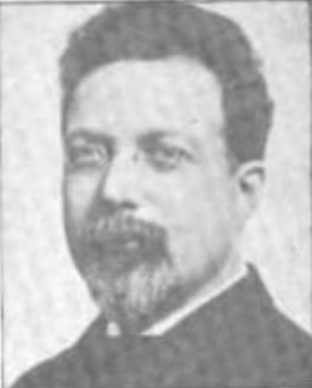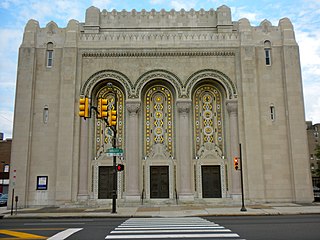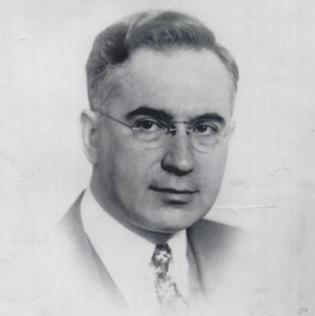Related Research Articles

Orthodox Judaism is the collective term for the traditionalist branches of contemporary Judaism. Theologically, it is chiefly defined by regarding the Torah, both Written and Oral, as revealed by God to Moses on Mount Sinai and faithfully transmitted ever since.

Reform Judaism, also known as Liberal Judaism or Progressive Judaism, is a Jewish denomination that emphasizes the evolving nature of Judaism, the superiority of its ethical aspects to its ceremonial ones, and belief in a continuous search for truth and knowledge, which is closely intertwined with human reason and not limited to the theophany at Mount Sinai. A highly liberal strand of Judaism, it is characterized by lessened stress on ritual and personal observance, regarding halakha as non-binding and the individual Jew as autonomous, and great openness to external influences and progressive values. The fundamental difference is the approach to Torah and the implications of that approach. The Orthodox believe that it comes directly from God and so cannot be changed. Since its founding in Germany in the 1800s, Reform Judaism has adapted prayer liturgy into a more flexible understanding of Judaism.

Reconstructionist Judaism is a Jewish movement based on the concepts developed by Rabbi Mordecai Kaplan (1881–1983) that views Judaism as a progressively evolving civilization rather than just a religion. The movement originated as a semi-organized stream within Conservative Judaism, developed between the late 1920s and the 1940s before seceding in 1955, and established a rabbinical college in 1967. Reconstructionist Judaism is recognized by many scholars as one of the four major streams of Judaism in America alongside Orthodox, Conservative, and Reform.

There is no established formulation of principles of faith that are recognized by all branches of Judaism. Central authority in Judaism is not vested in any one person or group - although the Sanhedrin, the supreme Jewish religious court, would fulfill this role if it were re-established - but rather in Judaism's sacred writings, laws, and traditions.
Modern Orthodox Judaism is a movement within Orthodox Judaism that attempts to synthesize Jewish values and the observance of Jewish law with the modern world.
Jewish religious movements, sometimes called "denominations", include diverse groups within Judaism which have developed among Jews from ancient times. Today in the west, the most prominent divisions are between traditionalist Orthodox movements and modernist movements such as Reform Judaism originating in late 18th century Europe, Conservative originating in 19th century Europe, and smaller others.
The Union for Reform Judaism (URJ), known as the Union of American Hebrew Congregations (UAHC) until 2003, founded in 1873 by Rabbi Isaac Mayer Wise, is the congregational arm of Reform Judaism in North America. The other two arms established by Rabbi Wise are the Hebrew Union College-Jewish Institute of Religion and the Central Conference of American Rabbis. The current president of the URJ is Rabbi Rick Jacobs.
Jewish leadership has evolved over time. Since the destruction of the Second Temple in Jerusalem in 70 CE, there has been no single body that has a leadership position over the entire Jewish diaspora. Various branches of Judaism, as well as Jewish religious or secular communities and political movements around the world elect or appoint their governing bodies, often subdivided by country or region.
Elmer Berger was a Jewish Reform rabbi widely known for his anti-Zionism. He was the executive director of the American Council for Judaism from its founding in 1942 until 1955. After this time, he served as a consultant until he was forced to resign in 1968, when he founded American Jewish Alternatives to Zionism.
Reform Zionism, also known as Progressive Zionism, is the ideology of the Zionist arm of the Reform or Progressive branch of Judaism. The Association of Reform Zionists of America is the American Reform movement's Zionist organization. Their mission “endeavors to make Israel fundamental to the sacred lives and Jewish identity of Reform Jews. As a Zionist organization, the association champions activities that further enhance Israel as a pluralistic, just and democratic Jewish state.” In Israel, Reform Zionism is associated with the Israel Movement for Progressive Judaism.
The Pittsburgh Platform is a pivotal 1885 document in the history of the American Reform Movement in Judaism that called for Jews to adopt a modern approach to the practice of their faith. While it was never formally adopted by the Union of American Hebrew Congregations (UAHC) or the Central Conference of American Rabbis founded four years after its release, and several rabbis who remained associated with Reform in its wake attempted to distance themselves from it, the platform exerted great influence over the movement in the next fifty years, and still influences some Reform Jews who hold classicist views to this day.
Criticism of Judaism refers to criticism of Jewish religious doctrines, texts, laws, and practices. Early criticism originated in inter-faith polemics between Christianity and Judaism. Important disputations in the Middle Ages gave rise to widely publicized criticisms. Modern criticisms also reflect the inter-branch Jewish schisms between Orthodox Judaism, Conservative Judaism, and Reform Judaism.

David Philipson was an American Reform rabbi, orator, and author.

Congregation Rodeph Shalom of Philadelphia, founded in 1795, is the oldest Ashkenazic synagogue in the Western Hemisphere. It is noted historically for its leadership of the Reform Judaism among American Hebrew congregations, for its spiritual influence upon international Jewry, and for its unique 1927 Moorish Revival building on North Broad Street, on the National Register of Historic Places for many decades.
The American Council for Judaism (ACJ) is an organization of American Jews committed to the proposition that Jews are not a national but a religious group, adhering to the original stated principles of Reform Judaism, as articulated in the 1885 Pittsburgh Platform. In particular, it is notable for its historical opposition to Zionism. Although it has since moderated its stance on the issue, it still advocates that American Jews distance themselves from Israel politically, and does not view Israel as a universal Jewish homeland. The ACJ has also championed women's rights, including the right for women to serve as rabbis, and has supported Reform Jewish congregations and contributed to the publication of new editions of prayer books for religious services predominately in the English language for Jews in English-speaking countries.
The Union Prayer Book was a Siddur published by the Central Conference of American Rabbis to serve the needs of the Reform Judaism movement in the United States.

Samuel Solomon Cohon was an American rabbi and Chair of Theology at Hebrew Union College, a leader of American Reform Judaism in the mid-20th century.
The Miami Platform is the 1997 platform for American Reform Judaism. The platform was adopted by the Central Conference of American Rabbis on June 24, 1997. The Miami Platform clarified the relationship between American Reform Judaism and the Zionist movement.
The New Pittsburgh Platform is the 1999 platform for American Reform Judaism. The "Statement of Principles" was adopted by the Central Conference of American Rabbis in May, 1999. The New Pittsburgh Platform was a "centrist" compromise between the traditionalist and Classical wings of the Reform movement. The New Pittsburgh Platform was issued 114 years after the first Reform platform, the Pittsburgh Platform of 1885.
Reform Judaism: A Centenary Perspective is a statement of American Reform Judaism. The statement was adopted by the Central Conference of American Rabbis in San Francisco in 1976. The Centenary Perspective marked the 100th anniversary of the Union of American Hebrew Congregations and the Hebrew Union College – Jewish Institute of Religion.
References
- ↑ "Building a Reform Platform". Union for Reform Judaism . Retrieved 2023-02-16.
- 1 2 "Commentary on the Principles for Reform Judaism". Central Conference of American Rabbis . Retrieved 2023-02-16.